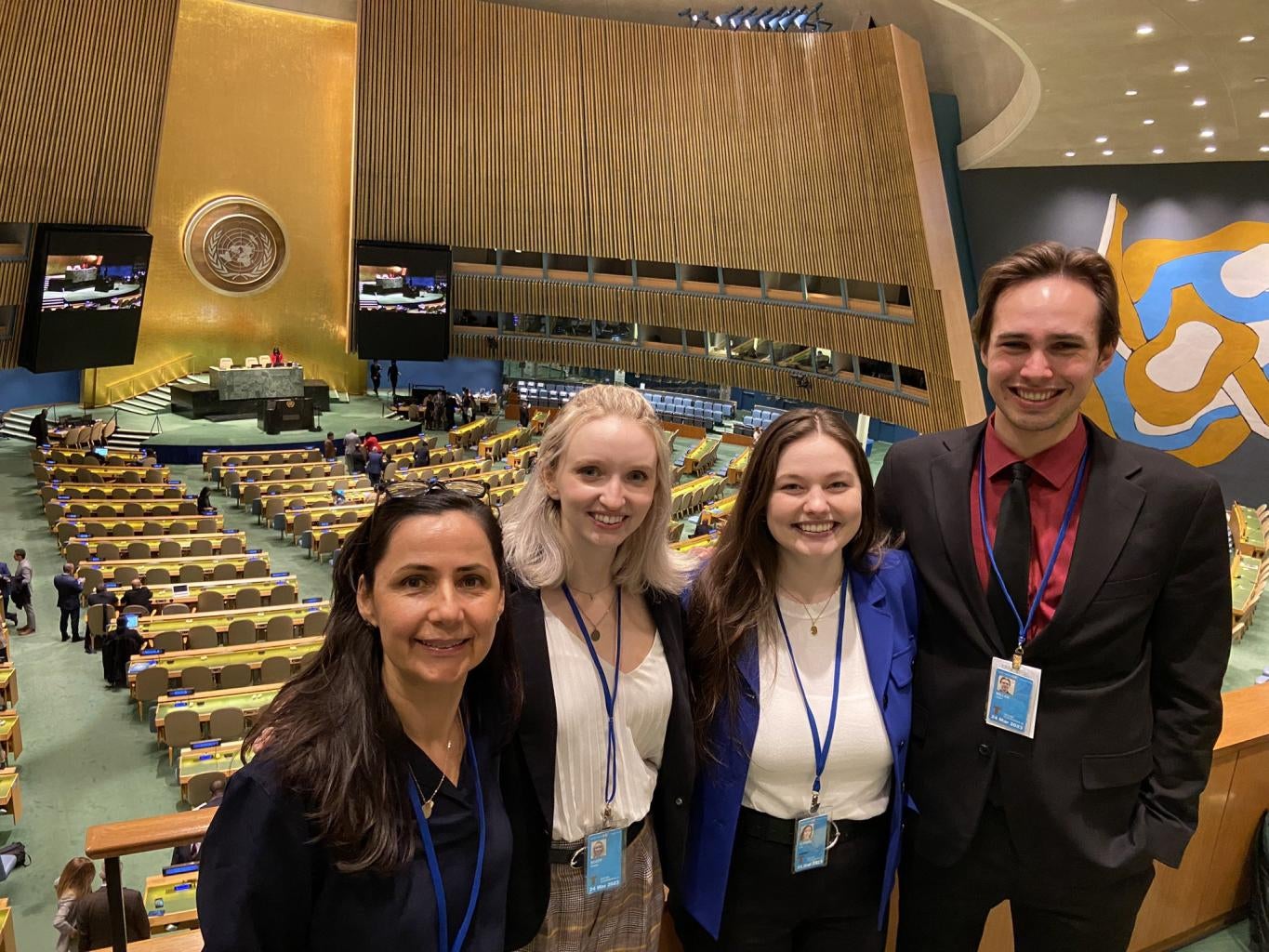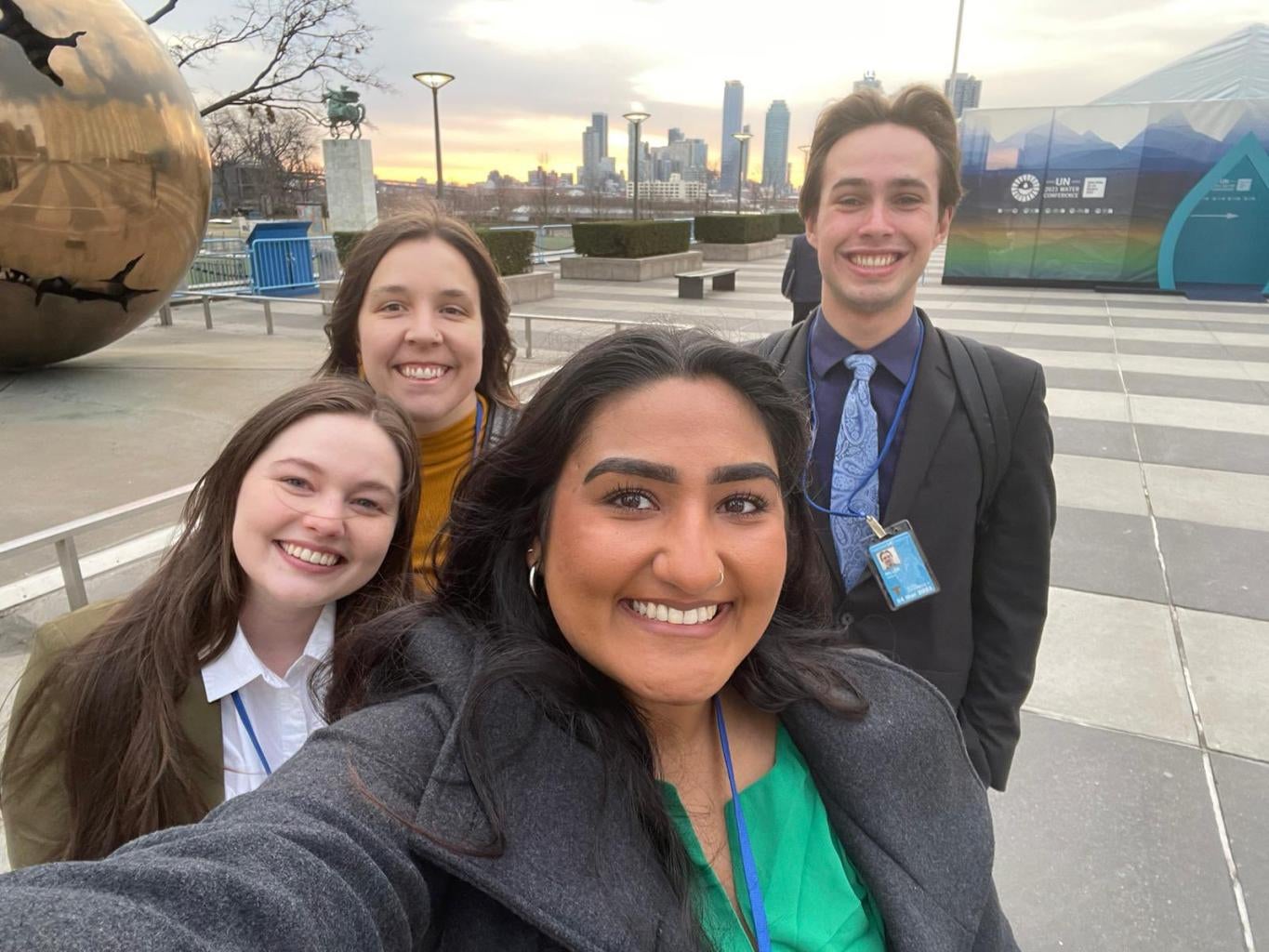
Several students from the Ford Institute working group Closing the Water Gap participated in the 2023 UN Water Conference in New York City.
Described as “a once-in-a-generation opportunity to unite the world around solving the water and sanitation crisis,” there hasn’t been such a massive global conference dedicated to water equity in nearly 50 years. National governments and stakeholders from all levels of society collaborated to make voluntary commitments to accelerate progress water-related goals and targets such as SDG 6.
“It was an incredible experience to be in the same room as prime ministers, presidents and experts in the field,” said Ariana Scott (MID ‘22). “I learned so much and am inspired to continue learning about and research water accessibility in the region and around the world.”
Closing the Water Gap conducts research focused on water access, equity and affordability. Marcela González Rivas, Associate Professor and leader of the working group, received special accreditation for Closing the Water Gap to attend this year's UN event.

The conference kicked off on World Water Day—March 22—a day dedicated to accelerating change to solve the water and sanitation crisis.
“I participated in several sessions where I was able to ask questions to panelists and engage in meaningful discussions with world leaders in WASH (water, sanitation, hygiene),” said Anisha Mallik, (MID '20), who's currently getting her Master of Public Health.
"It was really incredible to know that there is space for someone like me to enter the dialogue and to push progress forward as a young person,” said Mallik.
The UN Water Conference featured water activists who discussed the importance of keeping water public, and the necessity of local governance structures that follow the Human Right to Water and Sanitation framework.
“It was especially meaningful to hear from the leaders of youth and Indigenous movements, globally,” said Eve Kopicki (MPA ‘23). “These voices need to be at the forefront of decisions surrounding water justice and it was powerful to hear the stories shared.”
Reflecting on the trip, Dr. González Rivas shared, “It was particularly exciting for me to be there with students to be able to join hundreds of water justice grass roots and other organizations who have been working to advance the implementation of the human right to water across communities around the world.”